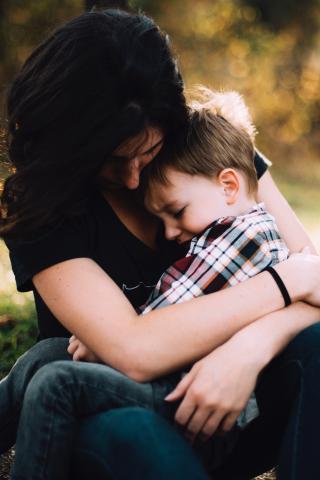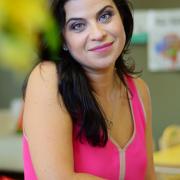
Photo by Jordan Whitt on Unsplash
Speaking to your Children about School Shootings
I have lost track of how many times I have cried and simultaneously been inspired due to the events at Marjory Stoneman Douglas High School, in Parkland, FL. The school is close to home. I live in Miami. That morning I knew that many parents would be reaching out to me wondering how to best help their children. Part of me wishes that I would only have had to convey this advice once, but it seems that violence in our schools and our communities is a topic that we must understand and grapple with continuously, especially as parents. We have to manage what we can and cannot do to be the change in our respective communities. We also must remember that we cannot be a secure base for our children if we are reaching into an empty well.
So how does a parent manage helping their child, while also being of service to the community that cares for your child and influences him?
A parent wrote to me that their child was told that, "It was not her school, and she is in a safe school so that she [her mother] needs to basically get over it.” The parent assumed that was the message she got from her overwhelmed teacher at school, but she didn’t want her daughter to just ignore it. This parent, like many parents, was caught between helping her child feel safe, being aware of the influence of her daughter’s school and teacher, and wondering how to help her child have empathy for those hurt in the event. The best way to handle this quandary is to be honest and comforting in an age-appropriate way with the children, and to be patient with the adult caretakers of their children.
The adult caretakers, for the most part, are doing their best. There is a tendency to want to avoid the situation on their part, since no one wants to speak of such a dark subject with any child. Be aware of this weakness, and don’t rely on the teachers or caregivers around you to speak to your child on this subject. They are not the right person to make sense of this topic. They do not have a sense of your values: what it means to be kind, to manage social interactions, how to manage fear, etc. Your values are incredibly important to share with your children at this time.
One reason many parents have such a hard time with this subject matter, and inadvertently defer the messaging to another caretaker, is because they don't want to admit to their children that danger is omnipresent. But that's a fact of life. We can do it gently, and we can do it in an age-appropriate way. Children need to understand how to stay safe and we do this by pointing out the dangers. We all really worry that our children are not safe at school, but we are all getting in a car and driving every day. Some parents are putting their 10-year-olds in the front seat. Everytime I see a 10-year-old in the front seat, I cringe. There's a higher probability of a child dying in a car accident than in a school shooting. I know that sounds harsh, but that's important to keep in mind because sometimes parents worry about the wrong things. Also, it is perfectly okay to explain to your eight-year-old child about mental illness, but be mindful to not introduce stigmas. Tell a child of that age that sometimes the brain is not functioning well, and in this particular case the shooter was given some assistance, but they were unable to maintain treatment due to his circumstances.
Another common question I have heard in the past month: "I didn’t say anything to my kids, and they haven't heard anything. Is that okay?" If your child is over five, it is almost impossible that they have not heard anything about school shootings. I was at a family-friendly pizza place yesterday, and the news was on every single screen. It is more likely that your children are not bringing it up. It's very important to speak to them about what you believe and want them to know, rather than having one of their friends give them the information. You can say something to the effect of, "You know people are talking about something that happened at a school, and I want to know if you've heard anything about it. Do you have any questions? Do you have any concerns?" and wait to hear what they tell you. They may say, "No Mommy, what happened?" In that case you can tell them "that someone made a really really big mistake and hurt a lot of people and I wanted to see what you heard and if you had any questions or fears about it.” If they say, "No, Mommy, I haven't heard anything,” then, you can let them know, "Well, if you hear anything that confuses you or makes you feel scared, please tell Mommy." Whatever you do, do not ignore it.
This is also an opportunity to talk about how to be kind in your circle; safety and what it means and why we do it; and how to ask for help. One theme to address with your child is how humans tend to cover up pain and confusion with anger. At the end of the day, most of the shooters are covering up their vulnerability, their pain, their feelings of being less than, with anger. Most children can understand and have felt that way, and this topic of school shooting is a tragic and large example of something that most humans and certainly most children grapple with every day: their vulnerable emotions defended with anger. So if you choose to avoid the discussion, know that you are missing an opportunity for an important lesson for your child’s social-emotional development.
For those of you with a child who is now scared both at home and at school, the best way to help is to sit with their fear. Fear is best treated with facts and by bearing witness. Try to remind yourself that it is less about fixing their fear and more about holding them and letting them know that it is okay to be scared. It is important to let them know that it is okay to feel like things are out of control. Then, after you’ve held them and loved them in that fear for a bit, ask them, “What do you think we can do to help you feel safe?” Also, tell them the beautiful story that Mr. Rogers tells - that in our world some people make bad choices, but there are also people, lots of people, who make good choices. Tell them that when they feel very afraid “to look for the helpers and the healers” around them. It is an opportunity to teach them about the shadow and the light of our world. Remember to keep checking in with them for the next couple of months. They may not tell you about the worry, but always keep the door open for them to speak to you about it.
The parents who question how to become engaged in bringing change to the community with their children have an additional challenge. School shootings and the political climate of our country are an incredibly dark and difficult combination, but they offer an opportunity to show our children first hand how a small group of people can bring significant change to their community. We can teach our children that each individual can take responsibility for a part that they can take action in and shift. The school shooting topic is a multidimensional issue. I have read many pieces from research experts about the need for changes in gun control, school security, mental health services, parenting, video game use, voter rights/registration, etc.. All of these actions in each of these brackets would bring about change to our community, and you should take a few moments to understand these different solutions Then, take this opportunity to teach your children that change happens through each individual choosing where they wish to help and following through. If everyone in our community chose one of the issues above, then change most definitely would be achieved.
My daughter translated that into, “I heard that they needed blood, but I'm mad that I can't because I'm too young.” I responded with, "What can you do, if getting blood for the victims is truly important to you?” She said, "Oh, I can help the adults give blood!" She spoke to her school teachers and administrators, and they’re moving towards that. The question then for you to answer with your children is: What can we do within our own community and our own circles to be the change, the kindness, and the peace that we all wish to enjoy? That's how we can help our children feel that they have agency in their safety.
So get out there, choose what speaks to you, whether it is one facet of the problem or all of them, and join those communities to bring the change they seek. Know that social change and social justice is looking at you daily in the eyes, hearts and minds of your children. We have the responsibility and privilege as parents to raise kind and thoughtful citizens of the world.


The views and opinions expressed in this post are those of the author(s) and do not necessarily reflect those of MomsRising.org.
MomsRising.org strongly encourages our readers to post comments in response to blog posts. We value diversity of opinions and perspectives. Our goals for this space are to be educational, thought-provoking, and respectful. So we actively moderate comments and we reserve the right to edit or remove comments that undermine these goals. Thanks!